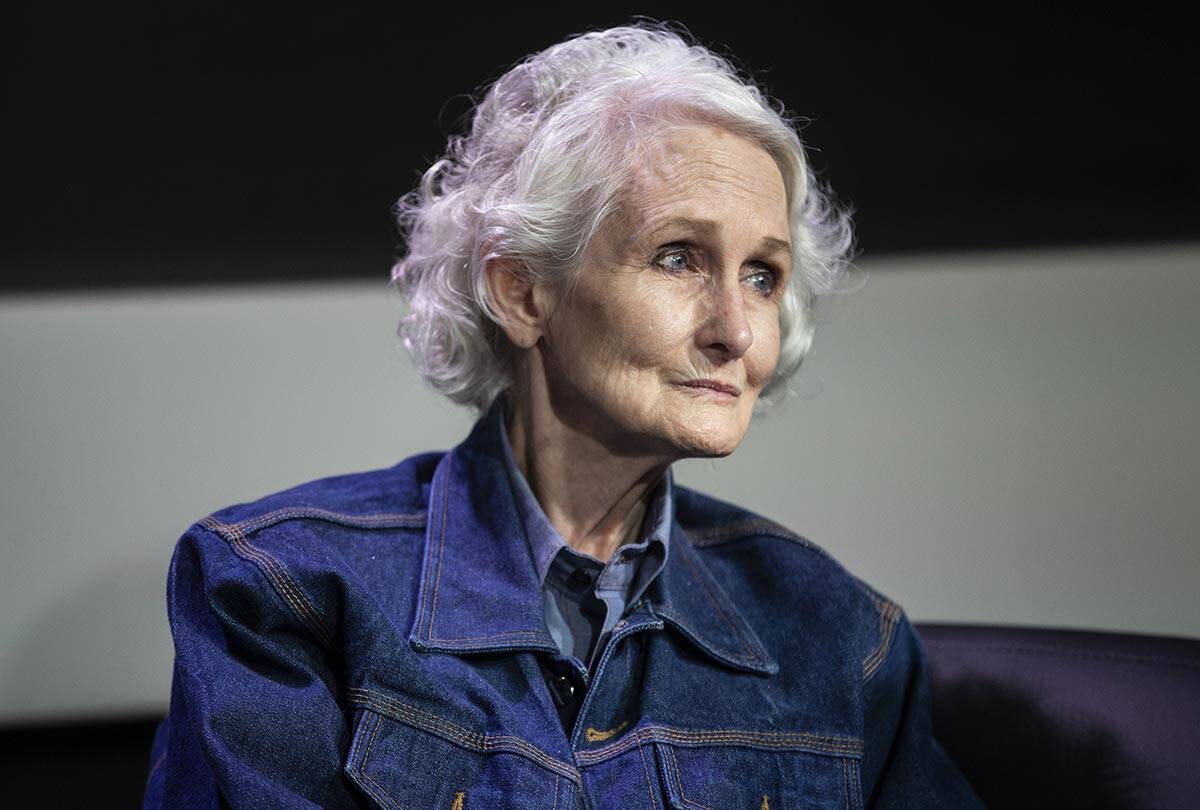Margaret Rudin filed a lawsuit against the state of Nevada on Thursday, exactly 23 years to the day that she alleges she was wrongfully convicted of killing her husband in one of Las Vegas’ most notorious murder trials.
Rudin was 76 when she was released on parole in 2020 after serving nearly 20 years in prison in the death of her husband, Ron Rudin. Two years ago, U.S. District Judge Richard Boulware vacated her conviction, finding that Rudin received ineffective counsel from her late defense attorney before a jury convicted her on May 2, 2001.
The Clark County district attorney’s office subsequently declined to retry her on a murder charge, after the Nevada attorney general’s office decided not to appeal the federal judge’s ruling.
‘Flimsy evidence’
Her lawsuit filed Thursday morning alleges that prosecutors did not have sufficient evidence to charge Margaret Rudin in her husband’s death.
“As with many wrongful convictions, Margaret Rudin’s wrongful conviction was based on flimsy evidence, overzealous and inexperienced detectives, and a media frenzy around the crime which led to what even the presiding judge would call in later documentary interviews a ‘circus’ atmosphere of her trial,” attorneys Adam Breeden and Corrine Murphy wrote in the complaint.
The attorney general’s office, which would represent the state of Nevada against wrongful conviction lawsuits, declined to comment on the pending litigation.
In an emailed statement released Thursday, Rudin’s attorneys said she has consistently denied her involvement in her husband’s death over the past three decades.
Amended statute
“Today in her early 80s, Margaret Rudin intends to prove, under a Nevada statute amended in 2019 to address the rights of persons wrongfully convicted, that she was not involved either directly or indirectly in her husband’s death and did not commit the crime,” her attorneys said in the statement.
In 2019, legislators approved a bill allowing those exonerated or deemed wrongfully convicted of crimes to sue the state for damages.
Ron Rudin, a multimillionaire who made most of his money in Las Vegas real estate deals, disappeared from the couple’s home in December 1994. His car was found in the parking lot of the Crazy Horse Too, a now-closed strip club “known to have ties with organized crime,” Margaret Rudin’s attorneys said in Thursday’s lawsuit.
The 64-year-old’s burnt body was found in January 1995 near Lake Mohave in the remains of a burned-out trunk that police claimed was linked to Margaret Rudin.
Police and prosecutors had alleged that the crime was committed for money and that Ron Rudin was prepared to divorce his wife when he was killed.
Police interviewed a handyman, who is now deceased, who claimed that Margaret Rudin hired him to clean up a bloody mattress and carpet from the couple’s home. According to Thursday’s lawsuit, the handyman’s testimony contradicted evidence from the couple’s home, where Ron Rudin was believed to have been fatally shot.
Margaret Rudin was indicted on a murder charge in April 1997, but she fled Las Vegas and was later apprehended in Revere, Massachusetts, in 1999.
Margaret Rudin’s attorneys wrote in Thursday’s lawsuit that there was never any DNA evidence or fingerprints linking Margaret Rudin to the scene or the murder weapon — a handgun a diver found at Lake Mead in 1996.
Ron Rudin had a long list of enemies throughout his personal and professional life, including “questionable real estate investments,” according to Margaret Rudin’s attorneys.
Police were also unable to connect a potential accomplice to Margaret Rudin, who was “physically incapable” of putting her husband’s body in a trunk, driving it to Nelson’s Landing near Lake Mohave, and then dragging it into the desert, Breeden and Murphy wrote in the lawsuit.
“Margaret Rudin, in fact, did not murder Ron Rudin, did not participate in or plan his murder, and does not know who killed Ron Rudin,” Breeden and Murphy wrote in the lawsuit. “She is innocent of the crime and has professed her innocence to the crime and involvement in his death for thirty years.”
Contact Katelyn Newberg at knewberg@reviewjournal.com or 702-383-0240. Follow @k_newberg on Twitter.

